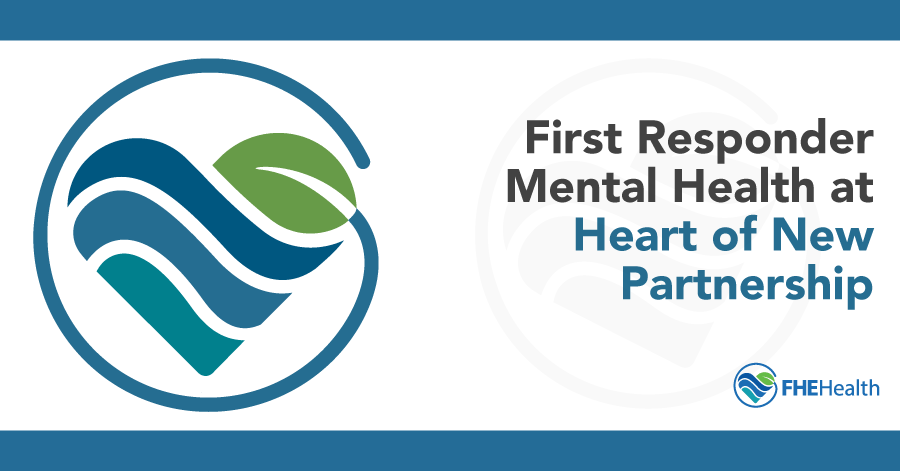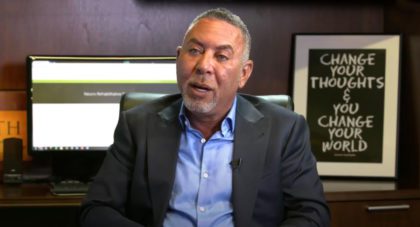
FHE Health has a new partner in its mission to support first responder mental health. The non-profit organization Irish Angel has been working to end mental health stigmas among first responders and to help them access quality treatment that addresses their unique needs.
Amanda Coleman is the co-founder of Irish Angel and the inspiration for its name. When asked why she started the organization and what she wanted to accomplish, she said she didn’t “want to be another awareness organization … I wanted to financially help people get help.”
That’s when she “toured different treatment facilities to see what was available” and in the process found Shatterproof FHE Health. Its specialized approach—Trauma Therapy, Peer Support Groups, Breathwork Therapy, Neuro Rehab, the Alumni Program—impressed Coleman, who said she wanted “to offer people the best treatment available.”
She elaborated more on why she was enthusiastic to have discovered Shatterproof FHE Health:
I want to get as many people into treatment as possible and to understand that it’s not just a bunch of doctors who are going to isolate you and put you in a ward. People have this perception that going to detox means you’re going to an awful place. That’s why it’s so important to partner with FHE, because their program is so good for first responders, and we want to break down the stigma.
Like stigma, the costs associated with treatment can be an obstacle for first responder families. Coleman cited travel expenses as one example. When the only quality treatment program is through an out-of-state provider like FHE Health, the costs of getting there can be an issue. Irish Angel tries to cover or offset these types of expenses for families, so that rehab is more financially feasible.
How Irish Angel Began
 The year was 2015. Coleman was working as a hairdresser in Ireland when she began to hear about “the war on cops” in the U.S. and the ensuing mental health toll. Men and women in blue were (and still are) dying at higher rates from suicide than they were in the line of duty.
The year was 2015. Coleman was working as a hairdresser in Ireland when she began to hear about “the war on cops” in the U.S. and the ensuing mental health toll. Men and women in blue were (and still are) dying at higher rates from suicide than they were in the line of duty.
“They’re out there doing their job but Internally they’re dying inside,” Coleman said. When she “found out what was happening with police officers,” she “went on LinkedIn and started posting messages of support with hashtags, and a following grew overnight.”
At the time, Coleman said she felt like she “wasn’t doing anything,” but for those for whom her messages of support were intended— “it meant everything.”
Sometime later, a SWAT team in Virginia got together and gave Coleman a flight jacket “like the kind that Tom Cruise wears in Top Gun with the patches,” Coleman recalled. They also presented her with a certificate signed by the team and her new honorary name “Irish Angel.”
The Prevalence of Trauma and Its Mental Health Impact

It’s clear from even a short conversation with Coleman that she understands the unique mental health needs of first responders. Trauma, she said, is frequently at the root of substance abuse and issues like anxiety and depression. For Coleman, it’s a topic that hits close to home. Trauma is a major thread in her own life story, starting at the age of nine—although she only recently began sharing her experience publicly.
“I grew up in a volatile home,” she said, and went on to share some of the tragedy and heartbreak she had experienced from childhood on.
What had inspired her to share her story publicly for the first time? Coleman attributed that to a conversation with FHE Health Founder and CEO Sherief Moustafa. During her visit to FHE Health, Moustafa had posed the question, “Who is Amanda Coleman?”
At the time, Coleman was scheduled to speak at a conference for first responders and members of the behavioral health community.
“Sherief encouraged me to tell my truth at that conference. It was very difficult for me, and I shook like a leaf,” Coleman said, yet it also was a moment of revelation and self-growth.
Since then, Coleman has continued to be open about her experiences of trauma. They are another source of connection and solidarity with first responders and the challenges they face.
Just before her interview for this article, Coleman was on the phone triaging a mental health crisis. The man, a veteran, was struggling with substance abuse and was suicidal. Coleman and her team had connected with him and were trying to persuade him to go to treatment. He was on the fence, but Coleman wasn’t giving up.
On September 17, Irish Angel will be hosting the “Irish Angel Protect Our Protectors Bash” in Burlington, Massachusetts. FHE Health is one of the sponsors.






